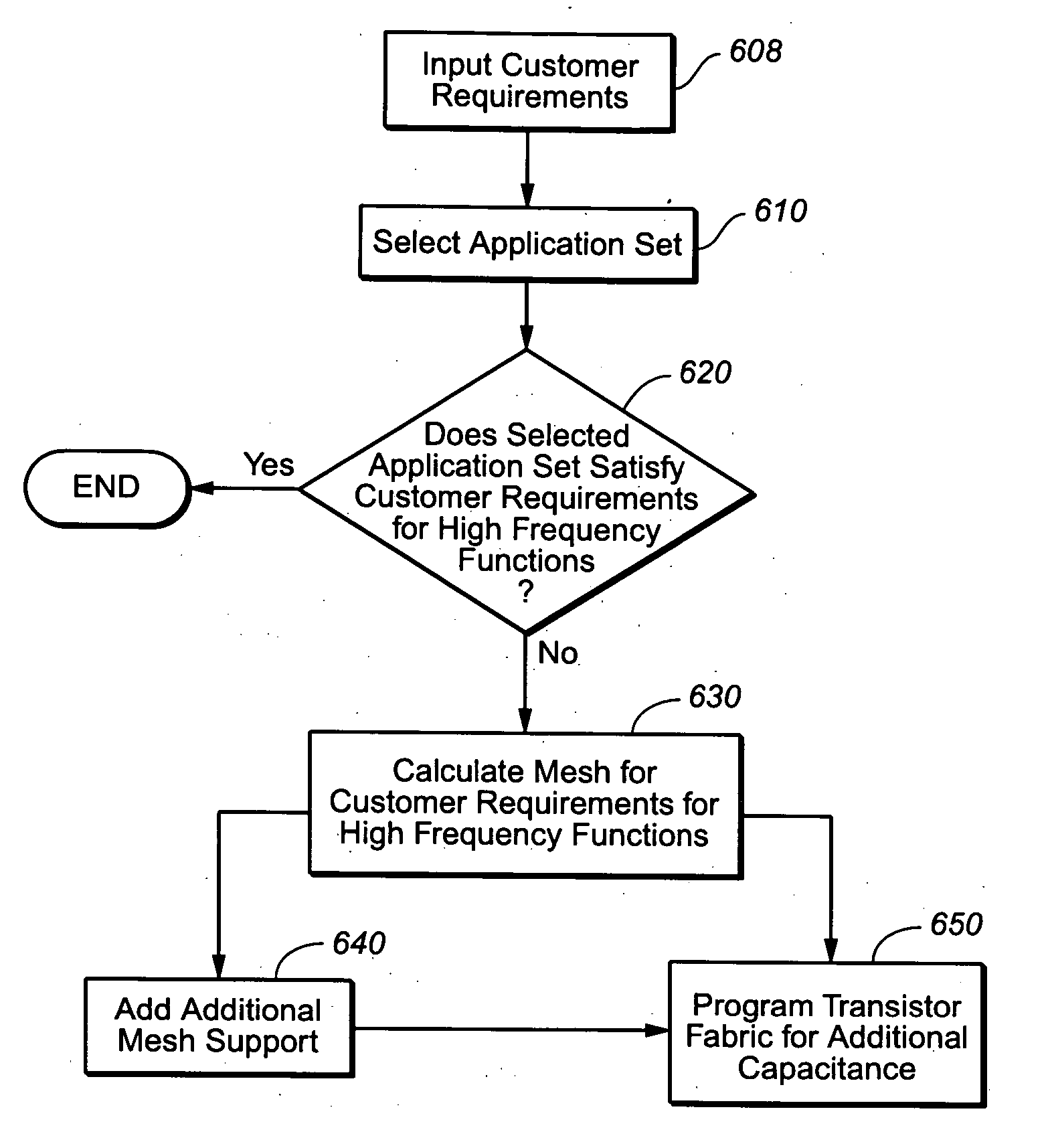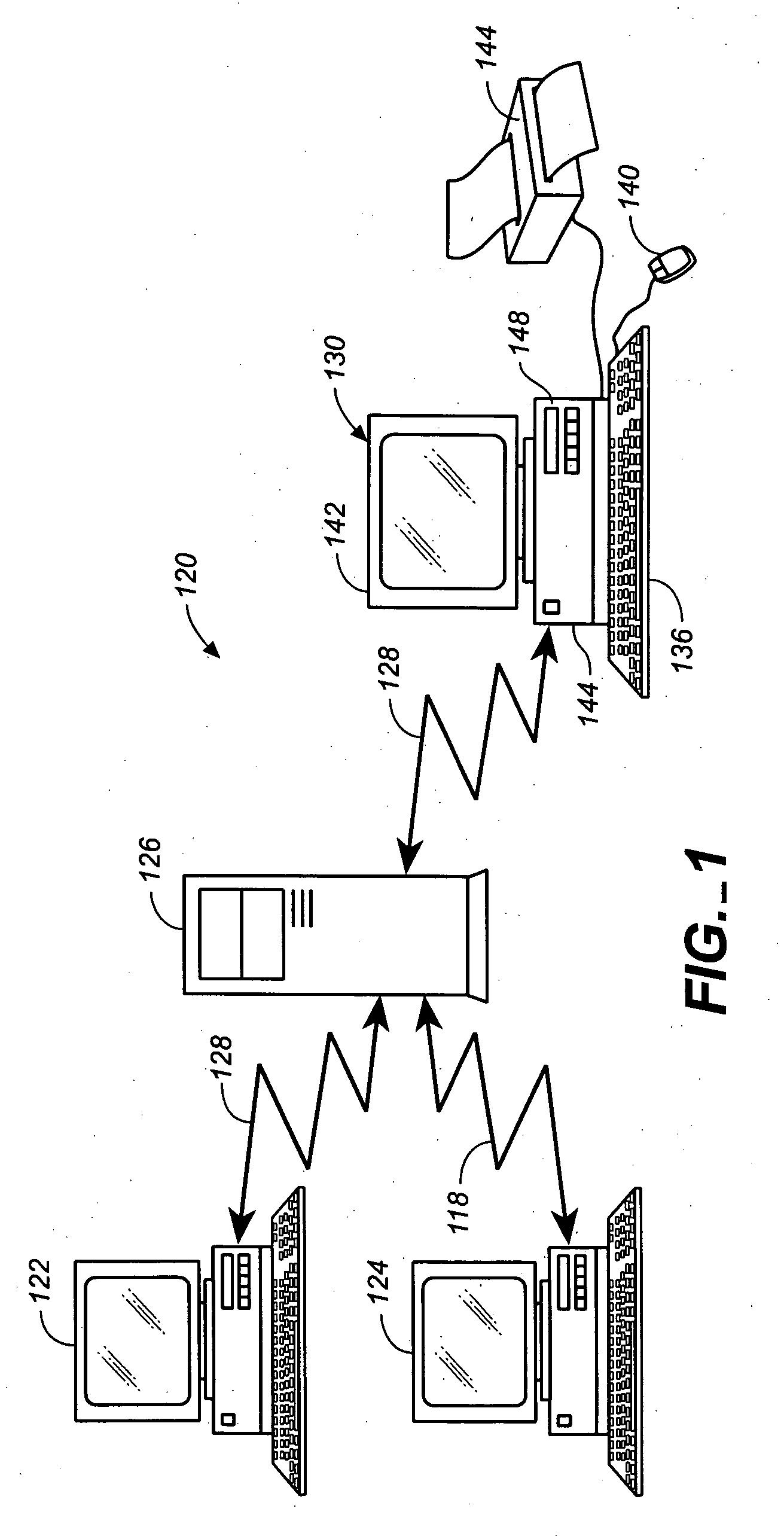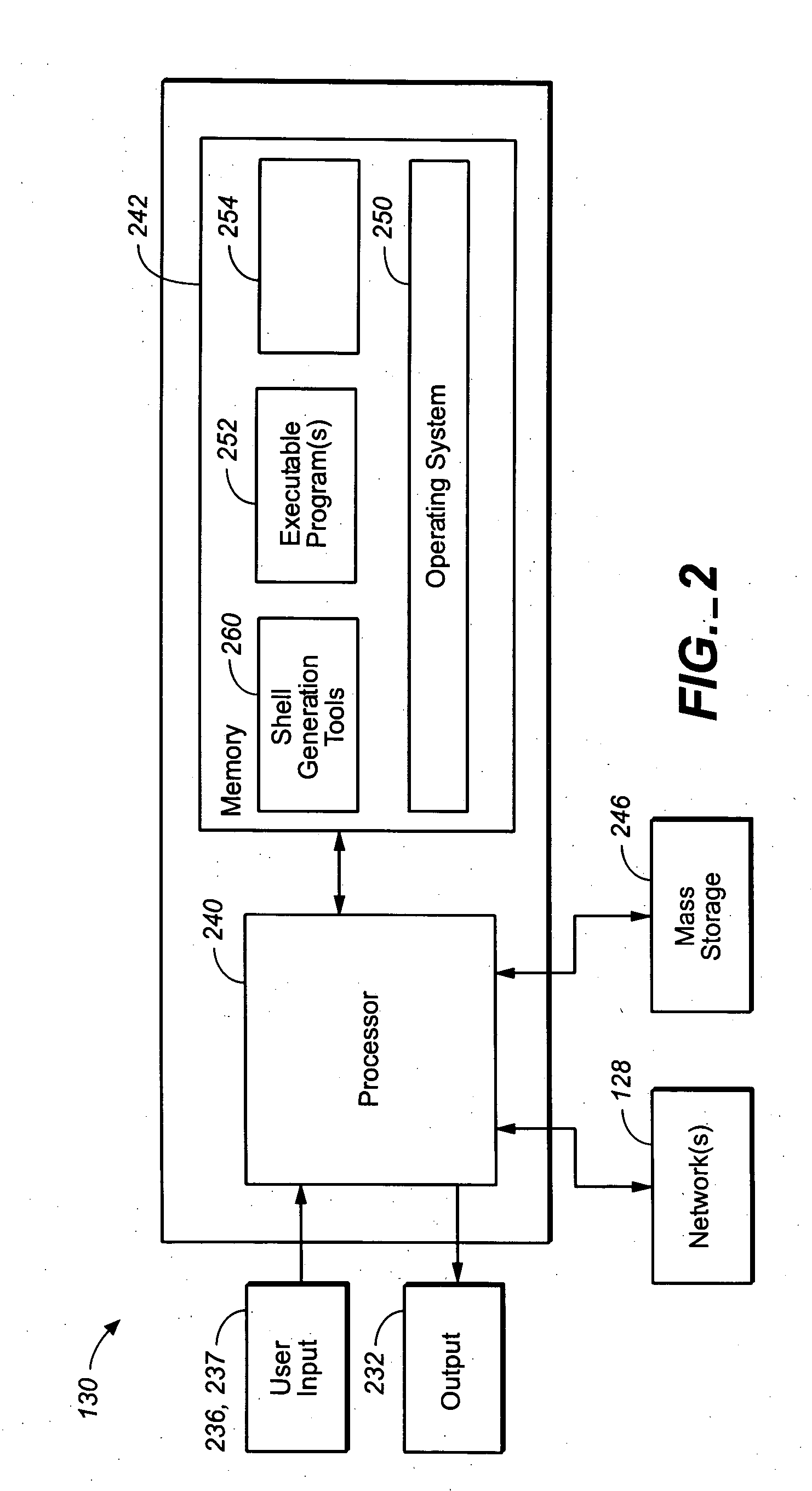Power mesh for multiple frequency operation of semiconductor products
a technology of power mesh and semiconductor products, applied in the field of electronic circuit design, can solve the problems of increasing complexity of integrated circuits and chips, increasing difficulty in specifying and designing chips that perform as actually specified, and increasing the difficulty of achieving the effect of high speed and decoupling capacitan
- Summary
- Abstract
- Description
- Claims
- Application Information
AI Technical Summary
Benefits of technology
Problems solved by technology
Method used
Image
Examples
Embodiment Construction
in conjunction with the accompanying figures.
BRIEF DESCRIPTION OF THE DRAWINGS
[0016] The numerous advantages of the present invention may be better understood by reference to the accompanying figures in which:
[0017]FIGS. 1 and 2 are simplified block diagrams of a computer network and a computer processor implementing the method by which a semiconductor platform having the multiple frequency grid of the invention can be fabricated in accordance with an embodiment of the invention.
[0018]FIG. 3 is a simplified block diagram of a semiconductor product that is an example of one that can take advantage of an implementation the multiple frequency grid of the invention.
[0019]FIG. 4 is a simplified block diagram of the semiconductor product as above but having an application set upon which the multiple frequency power mesh of the invention has been fabricated in accordance with an embodiment of the invention.
[0020]FIGS. 5a, 5b, and 5c are different embodiments of a localized grid that c...
PUM
 Login to View More
Login to View More Abstract
Description
Claims
Application Information
 Login to View More
Login to View More - R&D
- Intellectual Property
- Life Sciences
- Materials
- Tech Scout
- Unparalleled Data Quality
- Higher Quality Content
- 60% Fewer Hallucinations
Browse by: Latest US Patents, China's latest patents, Technical Efficacy Thesaurus, Application Domain, Technology Topic, Popular Technical Reports.
© 2025 PatSnap. All rights reserved.Legal|Privacy policy|Modern Slavery Act Transparency Statement|Sitemap|About US| Contact US: help@patsnap.com



